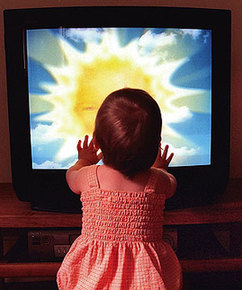TV linked to teen attention problems
Updated: 2007-09-05 11:36
Children who watch more than two hours of television a day are more likely to have attention problems as a teenager, a new study shows.
 The study by researchers at Otago University is the first to look at long-term links between watching television as a young child and problems in adolescence.
The study by researchers at Otago University is the first to look at long-term links between watching television as a young child and problems in adolescence.
It found that children who watched at least two hours of television a day were more likely to have short attention spans, and have difficulty concentrating on tasks.
The study has followed more than 1000 children born in Dunedin in 1972 and 1973.
Every two years between the ages of five and 11, the amount of time they spent watching television was recorded.
Children who watched more than two hours of television a day had more attention problems, which could not be explained by socio-economic factors, intelligence or previously diagnosed attention difficulties.
The problems were reported by teachers, parents and by the people taking part in the study, who were interviewed at ages 13 and 15.
They affected boys and girls.
Study co-author Bob Hancox said it supported recommendations that parents should limit the amount of television their children watched.
"Although teachers and parents have been concerned that television may be shortening the attention span of children, this is the first time that watching television has been linked to attention problems in adolescence," he said.
"These findings support the recommendation of the American Academy of Paediatrics to limit children's television to a maximum of two hours per day."
Christchurch mother Sue Curtin said her four children were involved in too many other activities to watch much television.
"We have three teenagers and an eight-year-old, and they have lots of interests like sport and playing guitar," she said.
"They do watch television but not that much, because they are always out and about doing something or with their friends.
"They did watch television when they were younger – mainly cartoons. It wouldn't have been more than two hours though."
Hancox said it would be interesting to repeat the study, because television had changed since the university's original study began.
"When the children in this study were growing up, there was no breakfast television for example, and no things like computer games.
"It would be interesting to see whether children are watching more television now."
The research was carried out by the university's Multidisciplinary Health and Development Research Unit.
|
||
|
|
|
||
|
||
|
|
|
|
